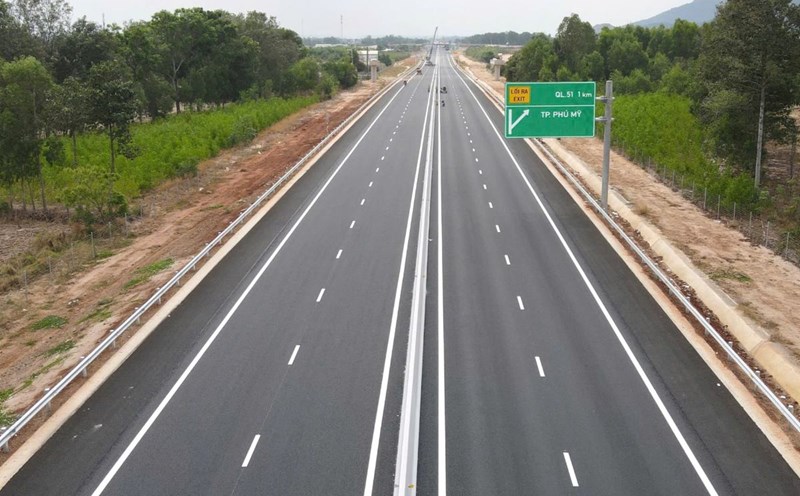Budget revenue increases sharply
In the first 3 months of 2025, the total state budget revenue implemented by the tax sector reached VND 668,313 billion, equal to 38.9% of the estimate, up 36.3% over the same period in 2024. According to statistics, 13/19 revenues reached over 30% of the estimate and 16/19 revenues recorded growth compared to the same period.
In terms of localities, 40/63 provinces and cities have a good collection progress (over 30% of the estimate), of which 56/63 localities have growth rates compared to the same period. However, there are still 8 localities with a collection progress of 26% below the estimate and 7 localities with a collection rate lower than the same period, including: Bac Kan, Quang Ngai, An Giang, Tra Vinh, Ha Giang, Long An and Thanh Hoa.
At the branch level, 17/20 regional Tax branches have a good collection progress (over 30% of the estimate) and 19/20 branches have a growth rate compared to the same period last year.
Promoting tax refunds, applying technology in tax management
Tax refund work continues to be promoted, ensuring publicity, transparency and compliance with the law. In the first quarter, the tax sector issued 3,911 decisions to refund value-added tax (VAT) with a total amount of VND 31,128 billion, up 6% over the same period in 2024. In particular, the implementation of the automatic personal income tax refund (PIT) application from April 4, 2025 to April 16, 2025 has processed 98,721 records, with a total refund of VND 489.28 billion.
In tax inspection and examination, tax authorities at all levels have conducted 10,382 inspections, equal to 15.5% of the annual plan and reaching 151.6% over the same period in 2024. Thereby, the amount of money recommended for handling is VND 16,930 billion, including VND 4,366 billion in increased revenue, VND 650 billion in deducted and VND 11,914 billion in loss reduction. VND 2,162 billion has been paid to the state budget.
Tax debt collection work also achieved positive results, collecting VND 5,103 billion in March 2025 alone, bringing the total revenue in the first 3 months of the year to VND 22,352 billion, equal to 83.2% over the same period.
Comprehensive digital transformation and strict management of e-commerce
Implementing Decree 178/2024, the tax sector has completed the consolidation of the apparatus in the direction of streamlining, effectiveness and efficiency. In the first quarter, 4,311 civil servants and employees were allowed to retire early or quit their jobs under the regime.
Institutionally, in 2025, the Tax Department was assigned to preside over 14 draft laws, including 1 Law, 9 Decrees and 4 Circulars. To date, 5 Decrees have been completed, including: Decree 20/2025 on joint transactions; Decree 49/2025 regulating the threshold of debts for temporary suspension of exit; Decree 70/2025 on invoices and documents; Decree 81/2025 and 82/2025 on extension of payment of taxes and land rent in 2025. Other decrees such as the global minimum tax and business household tax on digital platforms are in the process of collecting opinions.
Digital transformation is being promoted comprehensively. As of March 31, 2025, the electronic invoice system (EIA) has processed more than 13 billion invoices. In particular, all 16,165 gas stations nationwide have automatically connected to the Board of Directors according to the direction of the Prime Minister.
The eTax Mobile application continues to develop with more than 3.8 million downloads, 6.2 million transactions, the total amount of tax paid via the application reaches over VND 12,400 billion.
In tax management for business households, the revenue in the first 3 months of the year reached VND 8,695 billion, up 25.7% over the same period. In the e-commerce sector alone, 148 foreign suppliers have registered and paid taxes through the e-commerce portal, with revenue reaching about VND 2,832 billion. More than 66,000 domestic e-commerce businesses and individuals have also fulfilled their tax obligations with a total revenue of nearly 548 billion VND.
The tax sector is also implementing many topics to combat tax loss and fraud for business households, BOT operations, transfer pricing, real estate, imported agricultural products and high-income people. These are areas identified as having high risks that need to be strengthened.
In the second quarter, tax authorities continued to focus on reviewing revenue sources, strengthening anti-revenue, promoting digital transformation and perfecting institutions, contributing to the completion of budget collection and tax reform tasks in the new period.











